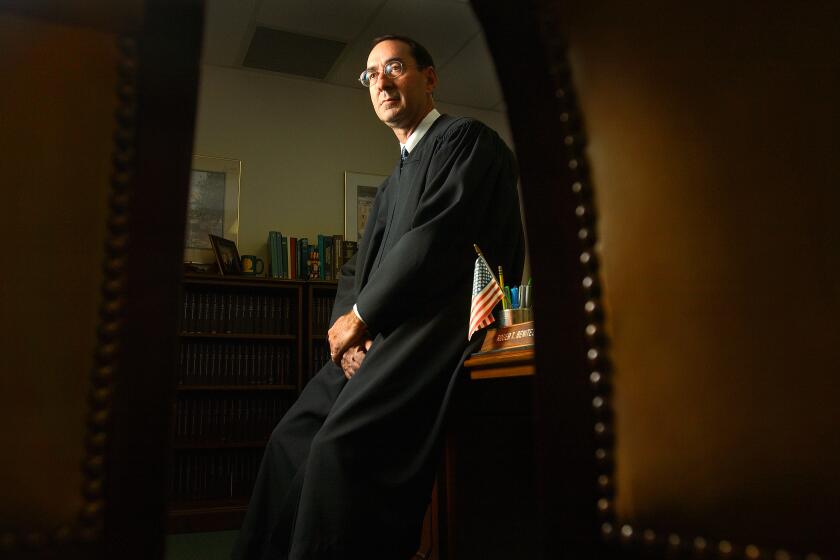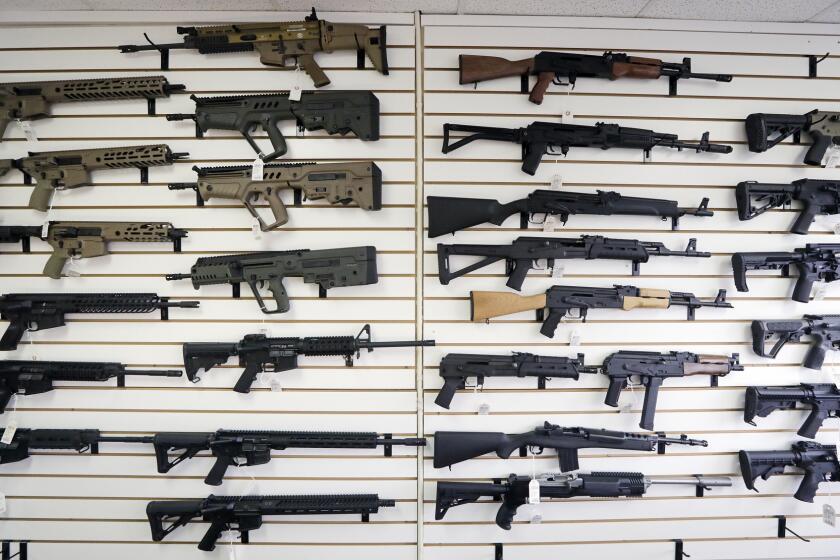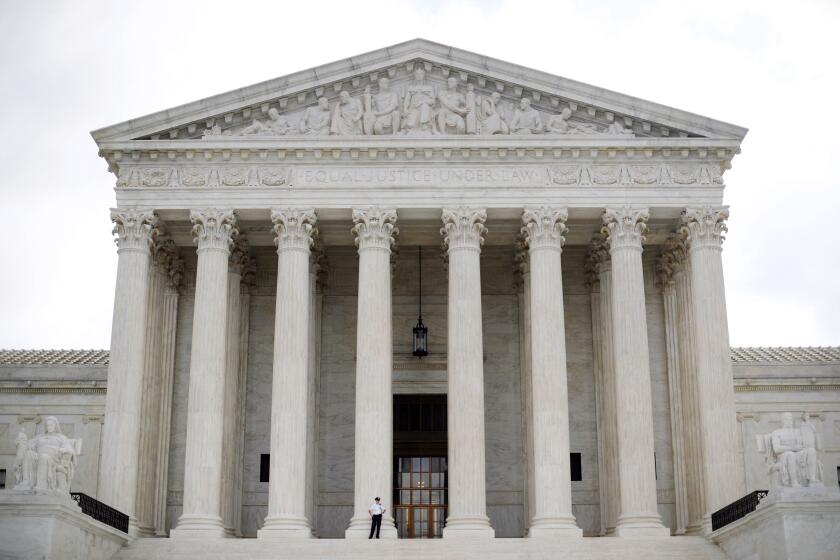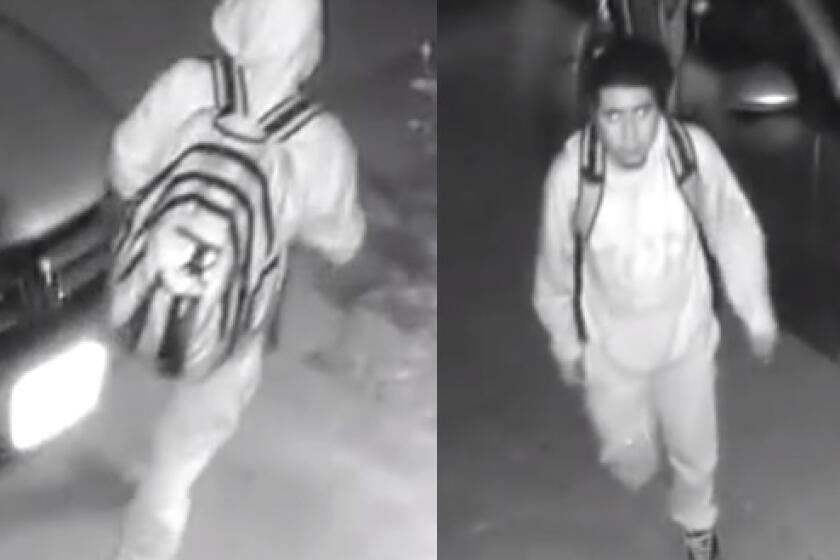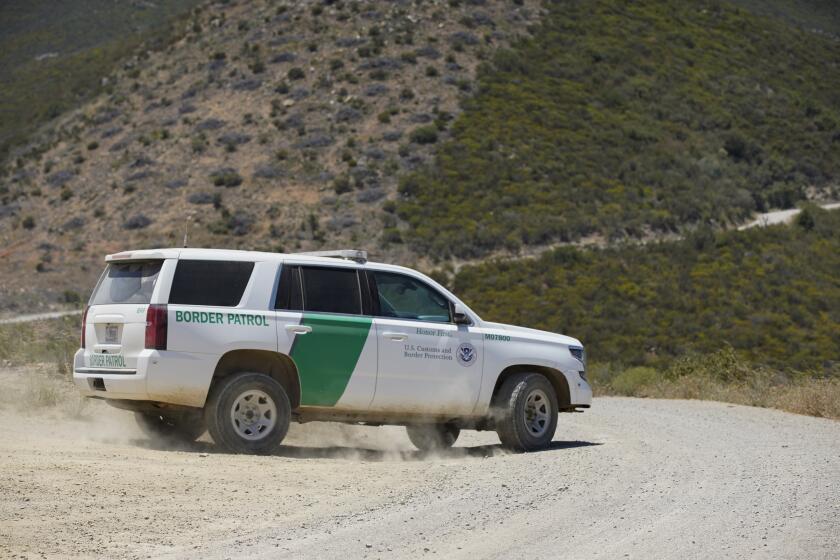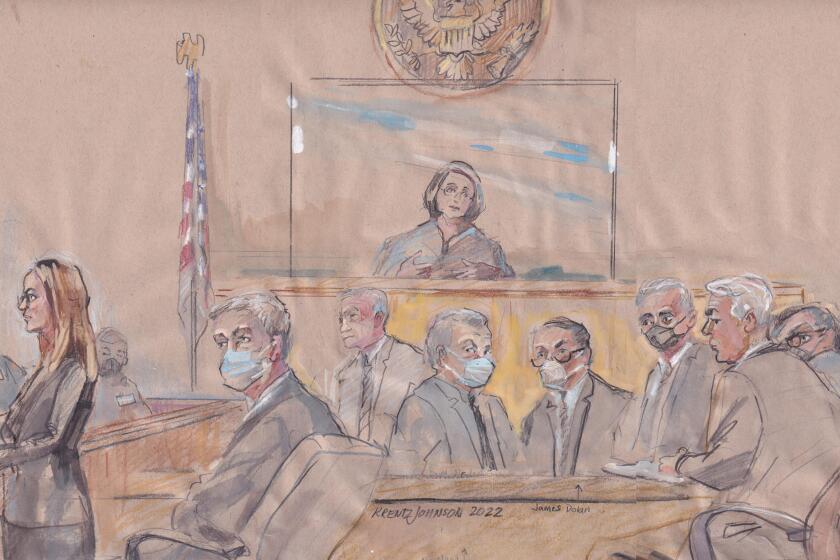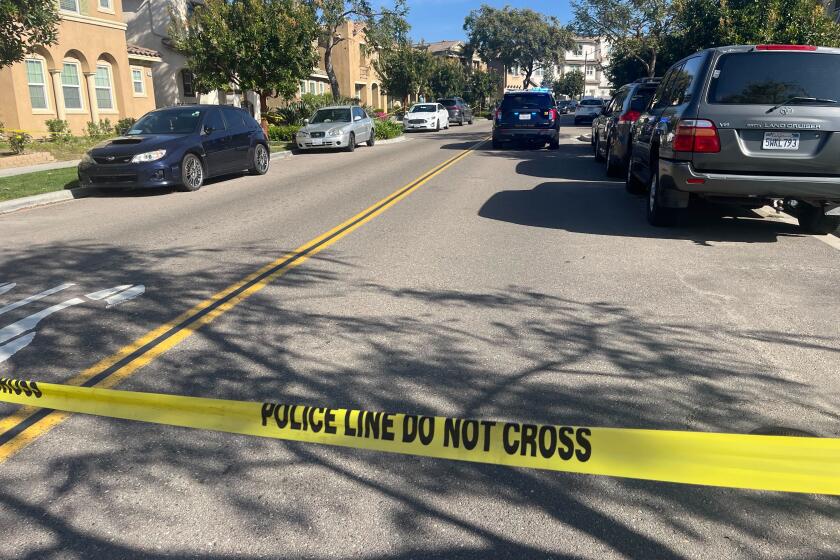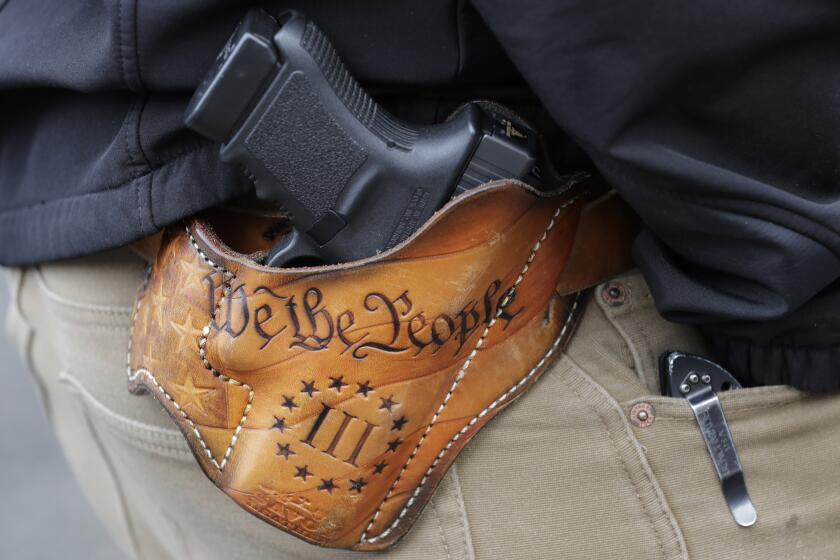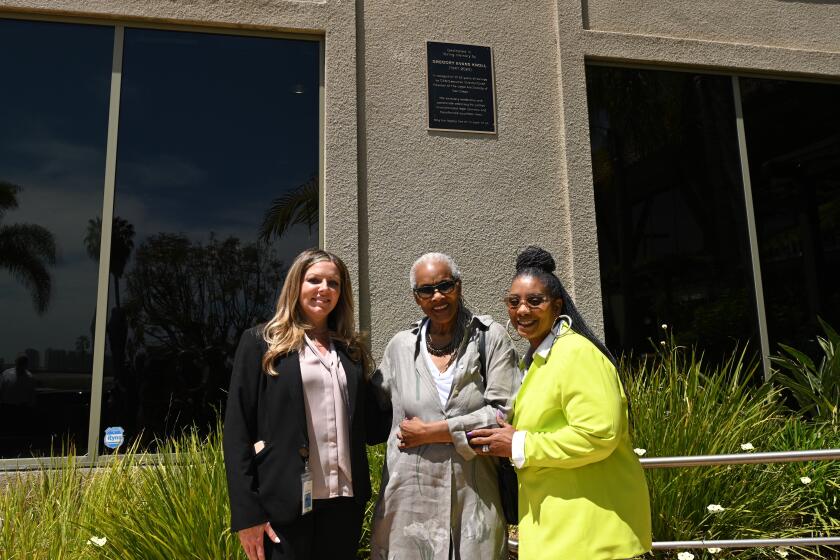After Supreme Court’s gun ruling, 2nd Amendment groups seek ‘do-over’ in San Diego cases
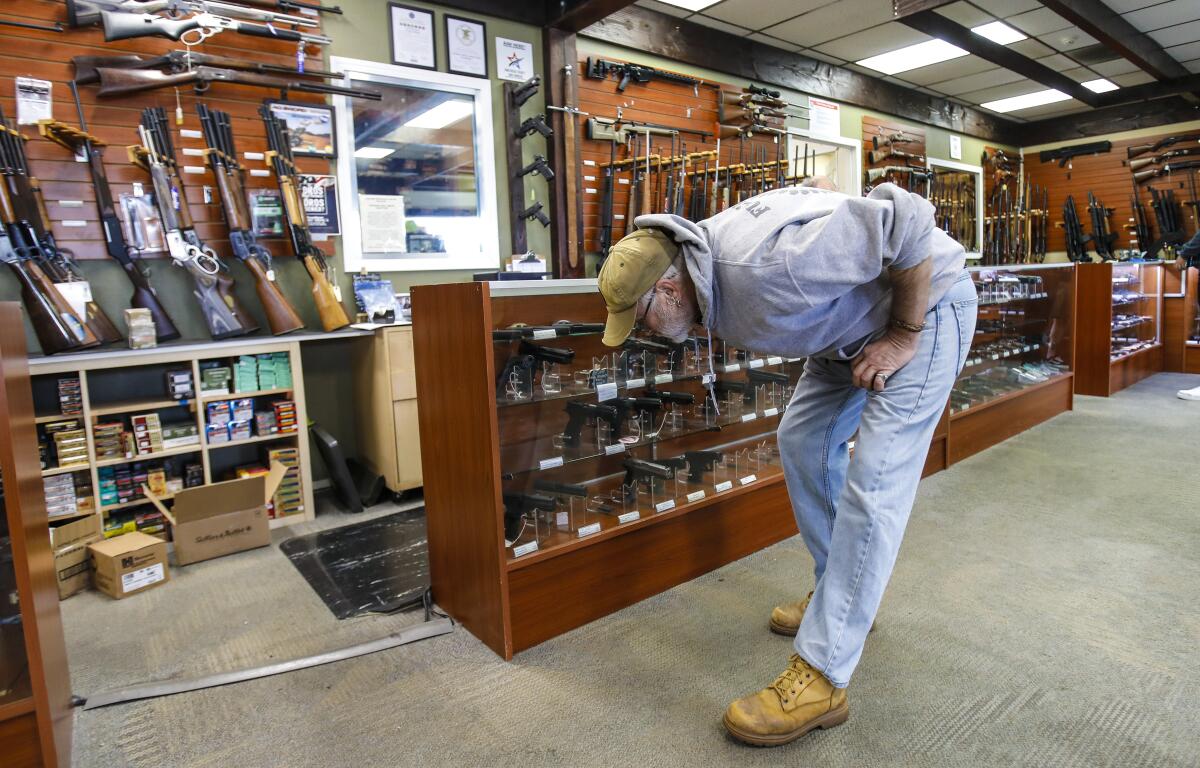
Hearings begin Monday in series of challenges to California’s gun restrictions following a Supreme Court ruling that could reshape state’s gun laws
Five months after the U.S. Supreme Court’s ruling in a New York gun case set a new standard for how judges should analyze firearm restrictions, a series of hearings are set to begin Monday in federal court in San Diego that could eventually reshape California’s strict gun laws.
The Supreme Court’s 6-3 decision struck down New York’s law requiring “good cause” to carry a concealed weapon, a ruling that has already had an immediate affect in San Diego County. The local Sheriff’s Department has rapidly accelerated its issuance of concealed-carry weapons permits since the June 23 opinion as a result, officials said.
This story is for subscribers
We offer subscribers exclusive access to our best journalism.
Thank you for your support.
But the much broader implications of the ruling — the establishment of a new legal framework for courts to rule on the constitutionality of gun restrictions — is just now beginning to unfold.
Judges must now apply a standard “rooted in the Second Amendment’s text, as informed by history,” and “must demonstrate that the regulation is consistent with the nation’s historical tradition of firearm regulation.”
This new legal framework — what lawyers are calling the “text and history” or “text, history and tradition” standard — could bring sweeping changes to local and state gun laws, including those that outlaw homemade firearms, those that ban assault weapons and large-capacity magazines, and those that restrict gun purchases based on a buyer’s age or the frequency of the buyer’s purchases. A law banning the possession of batons and billy clubs could also be upended, with all of these challenges happening in U.S. district court in San Diego, a favorite venue for gun-rights groups.
Though some analysts are still waiting to see what legal impact the new standard will have, government lawyers have written that the framework for evaluating Second Amendment challenges has been “fundamentally altered,” while one attorney and gun-rights advocate said the new standard offers a “do-over” for Californians seeking to overturn the state’s gun restrictions.
“Everything was decided before on slightly different grounds,” Chuck Michel, an attorney and the president of the California Rifle and Pistol Association, said in reference to a two-step test that courts previously used to evaluate and rule on legal challenges to gun laws.
That test “was wiped out” by the Supreme Court’s ruling in New York State Rifle & Pistol Association, Inc. v. Bruen, Michel said.
“Now it’s a new test. Everything has to be reevaluated under the new test,” Michel said. “This is a do-over.”
Nick Wilson, senior director for gun violence prevention at the Center for American Progress, said it remains unclear which gun laws will or will not stand up to the new framework.
“At this point, we don’t know just how big of a deal Bruen is,” Wilson said. “Is it an existential threat to all our laws? ... There are so many unanswered questions at this time.”
In San Diego, many of the cases that will be decided anew are pending — again — in front of U.S. District Judge Roger Benitez, a George W. Bush appointee known as “St. Benitez” among firearms enthusiasts for his gun-friendly rulings in previous cases.
Among the lawsuits now back in front of him are cases dealing with California’s ban on assault weapons, restrictions on ammunition purchases and high-capacity magazines, and a ban on batons and billy clubs. Other judges will be deciding cases challenging state or local laws that restrict the number of guns a person can buy in a 30-day period, that restrict the purchase of pre-made gun parts and homemade firearms known as “ghost guns,” and that limit the type and number of handguns that can be on the state’s official roster of approved handguns.
Challenge over legal fees
But first, before Benitez will rule on the central issues in those cases using the new “text and history” framework, it appears he will make a ruling on two lawsuits challenging a portion of another recently passed state gun law. If implemented, it could financially cripple the ability for gun-rights groups to sue on Second Amendment grounds.
California legislators passed Senate Bill 1327 in explicit retaliation for Texas’ de-facto abortion ban. Signed by Gov. Gavin Newsom in July and set to go into effect Jan. 1, part of the law makes it so that any citizen or group suing the government on Second Amendment grounds must pay for the government’s legal fees if even one of their legal claims is dismissed. The plaintiffs’ attorneys would also be on the hook.
Michel, who is representing the plaintiffs in one of the lawsuits challenging SB 1327, said the fee-shifting provision would “threaten plaintiffs and lawyers with insolvency” and make it “impossible to litigate” a Second Amendment case.
The American Civil Liberties Union has also raised concerns about the law. In a letter to lawmakers before it was passed, ACLU California Action — the policy analysis and legislative advocacy arm of California’s ACLU branches — said the bill “offends the constitutional structure of California and the United States and would set a dangerous legal precedent.”
In an era of fierce polarization, Judge Roger T. Benitez seems a perfect fit, an object of rage and adoration. His likeness as ‘St. Benitez’ — with robes and a halo, sometimes holding an AR-15 or a box of bullets — is plastered on T-shirts, prayer candles and even gun magazines.
Benitez will hear arguments Monday on whether to issue an injunction that would halt the enforcement of the law’s fee-shifting provision, and he appears poised to do so based on a tentative ruling he issued Nov. 15.
Deputies for California Attorney General Rob Bonta readily admit in court filings that the fee-shifting provision contained in SB 1327 was crafted to mirror the same provision written in the Texas abortion law — a provision that Bonta criticized as “blatantly unconstitutional.” The state even joined in filing amicus briefs opposing the provision in the Texas law.
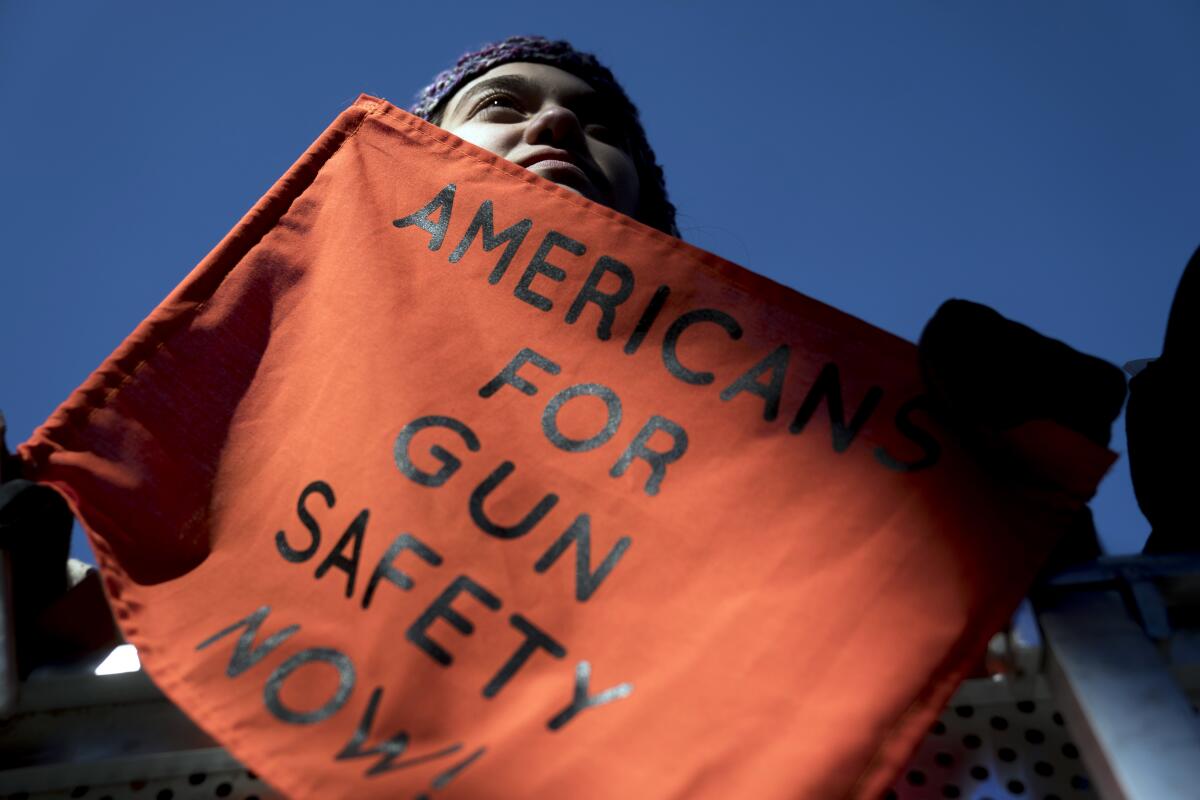
That stance has left government lawyers in the awkward position of having to defend a provision Bonta has called unconstitutional and dangerous, but also described as being used “to advance California’s values.” The law includes language that would invalidate it if the same provision in the Texas law was overturned, and Bonta has offered not to enforce the fee-shifting provision until a court rules on the same provision in the Texas abortion law.
Michel hopes Benitez issues the injunction to ensure the lawsuits dealing with actual firearms policy can move forward.
“We’re looking forward to getting that preliminary issue out of the way so that we can get to the central Second Amendment, constitutional issues in the ... cases where California’s gun laws are being challenged,” Michel said.
Pending gun cases
In addition to Monday’s hearing, Benitez has scheduled several mid-December hearings in a cluster of lawsuits challenging the state’s gun laws.
He has scheduled motion hearings for Dec. 12 in four cases, including the one that challenges California’s ban on assault weapons, one that restricts ammunition purchases, one that outlaws high-capacity magazines and one that outlaws batons and billy clubs.
All four of those cases were under appeal in the U.S. 9th Circuit Court of Appeals when the Supreme Court made its ruling in the New York case. The appeals court sent each of the cases back to district court to be relitigated under the new “text and history” standard.
“It’s been a long, drawn-out journey through the appellate courts to finally get back where we started,” Michel said. He does not expect Benitez to make any rulings of substance during the Dec. 12 hearings, but he does expect all parties to get answers about how the court expects both sides to argue the new standard.
In recent years gun ownership groups have filed numerous suits seeking to strike down gun-control laws, and expand gun-owning rights
Attorneys for the government have written in court filings in multiple cases about the need to consult with expert-witness historians in order to make fresh arguments in line with the new framework. Their arguments have yet to delve deeply into the history of gun regulations, but their motions have offered hints at how they might seek to prevail.
Specifically, the attorneys have pointed to the portion of the Bruen decision that held that the government need only find a “representative historical analogue” for a gun regulation and “not a historical twin.” The government attorneys quoted the Bruen decision wherein the conservative majority wrote: “So even if a modern-day regulation is not a dead ringer for historical precursors, it still may be analogous enough to pass constitutional muster.”
Attorneys for the gun-rights groups have gone more on the offensive in referencing historical arguments they made when their cases were first being heard in district court. In the assault weapons ban case before Benitez, plaintiffs’ attorneys George Lee and John Dillon argued the judge should quickly rule in their clients’ favor because “the record is replete with historical evidence upon which this court can rely to justify its decision.”
Several other firearms cases have also been sent back to district court from the 9th Circuit, but those cases are being heard by different judges. While briefs are being filed in those cases dealing with the Bruen decision and the new standard, no hearings have yet been scheduled.
The same week as the hearings in his other cases, Benitez has also scheduled a bench trial in the two cases challenging the fee-shifting provision, apparently with an eye toward deciding whether or not to halt the law before it takes effect in the New Year.
Concealed-carry weapons permits
While the lower courts begin to sort out how the new legal framework will impact the pending legal challenges, the decision in the New York concealed-carry case has had an immediate impact in San Diego County, where previous to the ruling a person had to show “good cause” to obtain a concealed-carry permit.
While some jurisdictions considered self-defense a good enough cause, many metropolitan areas, including San Diego County, required applicants to show a specific threat or justification — for example, a person with a stalker problem or a jeweler frequently transporting diamonds — as to why they needed to carry a gun in public.
The Sheriff’s Department, which issues permits, says it is still evaluating how Thursday’s ruling affects county gun owners
A day after the Bruen decision, Bonta issued a legal alert saying that in his view, the “good cause” requirement was now unconstitutional and could no longer be enforced.
Sheriff-elect Kelly Martinez told the Union-Tribune in September that the Sheriff’s Department, the regional licensing agency for concealed-carry permits, “has been flooded with applications” since then.
According to the Sheriff’s Department, since June 23 the agency has received more than 4,100 permit applications, or some 1,275 more than it received in the nearly six months before the ruling. While the department issued 1,870 new permits in all of 2021, it has already issued more — at least 1,964 — just in the months since the ruling.
That means that some 8,200 county residents are licensed as of Nov. 16 to carry a concealed handgun, up from the roughly 6,875 who had obtained such permits before the Supreme Court’s ruling, according to statistics provided by the Sheriff’s Department.
“I will follow the law in issuing concealed-carry permits,” Martinez told the Union-Tribune. “I will continue to require a background check and gun safety training ... The sheriff is responsible for processing the individual application for a permit and ensuring that individuals who do not meet the legal standard do not obtain one. I will fulfill that duty in a fair and efficient way.”
The latest news, as soon as it breaks.
Get our email alerts straight to your inbox.
You may occasionally receive promotional content from the San Diego Union-Tribune.
